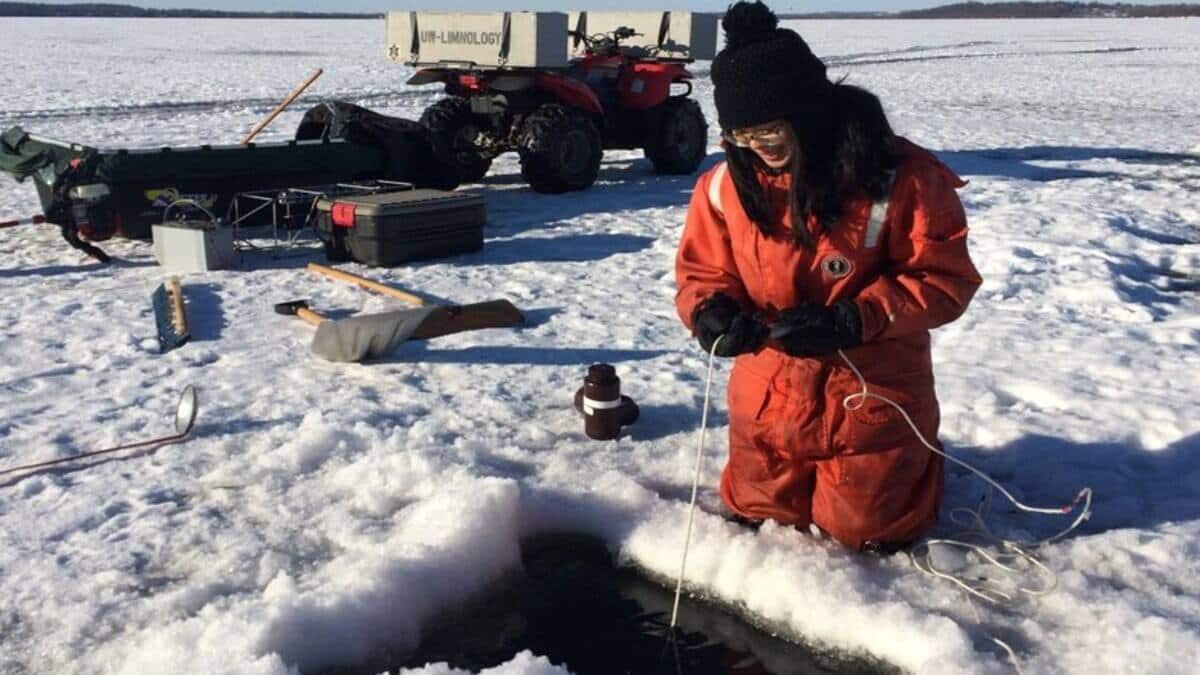IIT Madras, US researchers discover lake viruses that can kill bacteria, clean ecosystem
Gauri Mittal | June 2, 2025 | 05:40 PM IST | 2 mins read
The IIT Madras study reveals how freshwater viruses could revolutionise medicine and environmental management through phage therapy, conservation.

Researchers from Indian Institute of Technology (IIT) Madras and US universities – University of Wisconsin-Madison and the University of Texas – have completed the “world’s longest DNA-based study” of viruses in natural habitats, monitoring freshwater lakes for over two decades to unlock new possibilities in medicine and environmental conservation.
This research, led by Karthik Anantharaman, visiting professor, Wadhwani school of data science and AI, IIT Madras, and an associate professor of microbial and viral ecology at University of Wisconsin-Madison, USA, analysed 465 freshwater lake samples from Madison, Wisconsin, using machine learning tools and reconstructed 1.3 million virus genomes.
Published in the journal Nature Microbiology, the study reveals that viruses play crucial beneficial roles in ecosystems, challenging common misconceptions about their harmful nature.
IIT Madras research on virus
The IIT Madras research opens doors to applications, particularly in “phage therapy”, using specific viruses to combat antibiotic-resistant bacterial infections that pose growing threats in India and beyond.
“The COVID-19 pandemic has shown us just how important it is to track viruses. Understanding how viruses emerge, evolve, and interact with their environments is critical — not only for responding to pandemics but also for recognizing the vital roles they play in ecosystems… By investing in long-term viral monitoring, we can better prepare for future outbreaks and uncover the complex ways viruses contribute to the health of our planet,” Anantharaman said.
Also read IIT Madras launches online MTech in AI, opens admission to all 11 'web-enabled' PG courses
The researchers sequenced DNA from the lakes over a period of 20 years using a method called metagenomics. The key findings from this research are:
- Viruses follow seasonal and yearly cycles.
- Viruses have the ability to “steal” genes from their hosts and use it for their own purposes. Researchers have found 578 such examples.
- Viruses evolve over time as they change due to natural selection.
- Changing environmental factors affect viruses in a similar way that other organisms are affected.
“Viruses are everywhere in the environment and play essential, yet often underestimated and misunderstood roles in shaping microbiomes and human health. Contrary to common misconceptions, not all viruses are harmful” said Karthik Raman, professor at Wadhwani school of data science and AI.
“Many are integral to maintaining ecosystem health and microbiome stability, much like apex predators such as sharks or lions regulate the balance of ecosystems in the oceans or land,” he added.
The research also revealed how environmental factors, including pollution-associated carbon and ammonium levels, influence viral populations – “similar to how they would impact other organisms”.
Follow us for the latest education news on colleges and universities, admission, courses, exams, research, education policies, study abroad and more..
To get in touch, write to us at news@careers360.com.